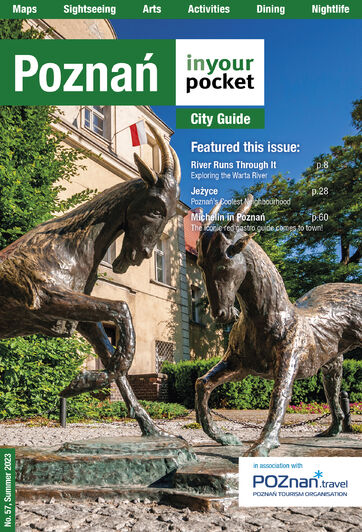Filled with 19th-20th century townhouses and several leafy parks, Łazarz has a distinct community feel with an undercurrent grungy vibe. Though it might at first feel largely residential, the district is home to many of Poznań’s attractions, including the famed International Fair grounds, the Palm House, a commie-tastic and highly instagrammable sporting arena (Hala Arena), and refurbished light cavalry barracks (City Park complex) now housing an assortment of top-notch restaurants.
History
Named after St. Lazarus, Łazarz was founded in the 16th century on land belonging to the St. Lazarus hospital, which still stands at ul. Niedziałkowskiego 30 (Wilda district). Over the ages, it was settled by the Bambers and - in the 19th century - industrialized with the addition of factories and an electrical plant. In April 1900 Łazarz was integrated into Poznań along with Jeżyce, Wilda, and Górczyn, sparking a period of rapid development. Luckily mostly spared during WWII, Łazarz served as the city’s administrative centre for a short time, and it continued to carry on a peaceful existence in the postwar years.


